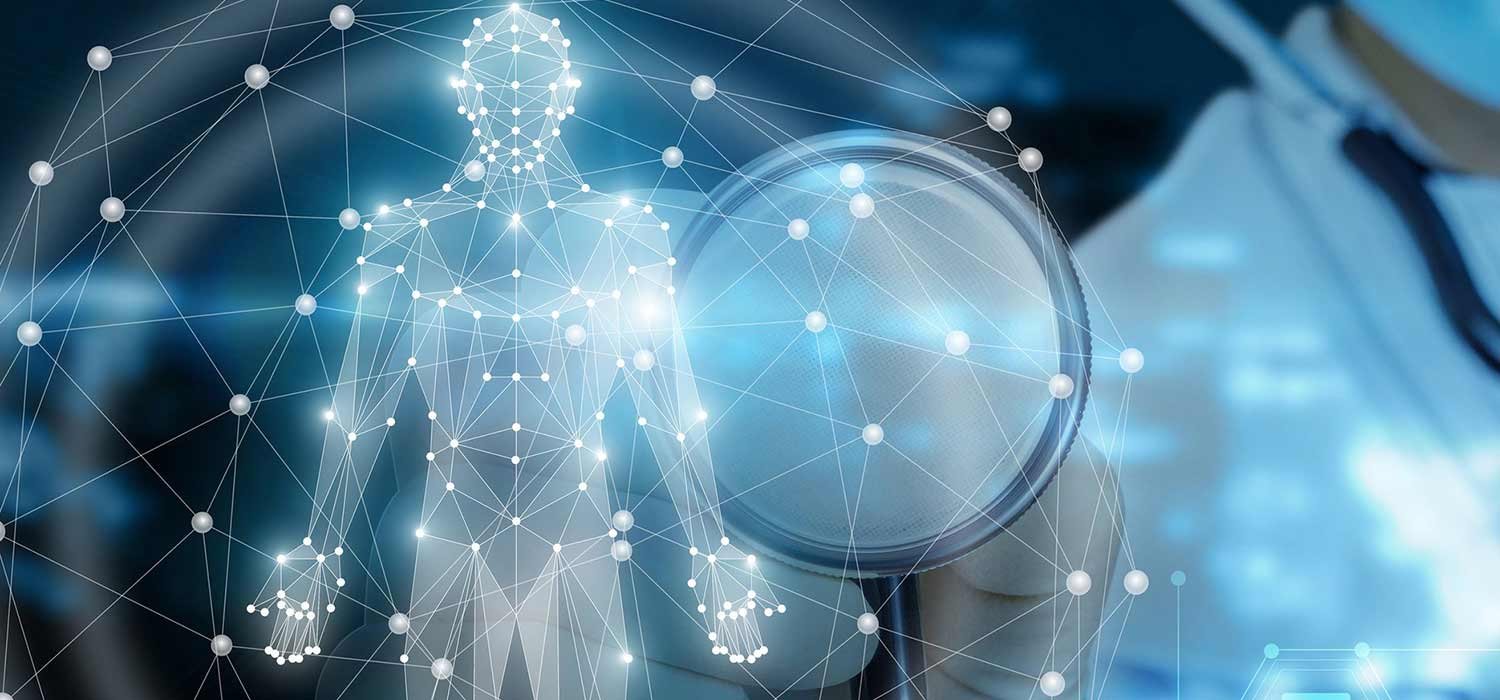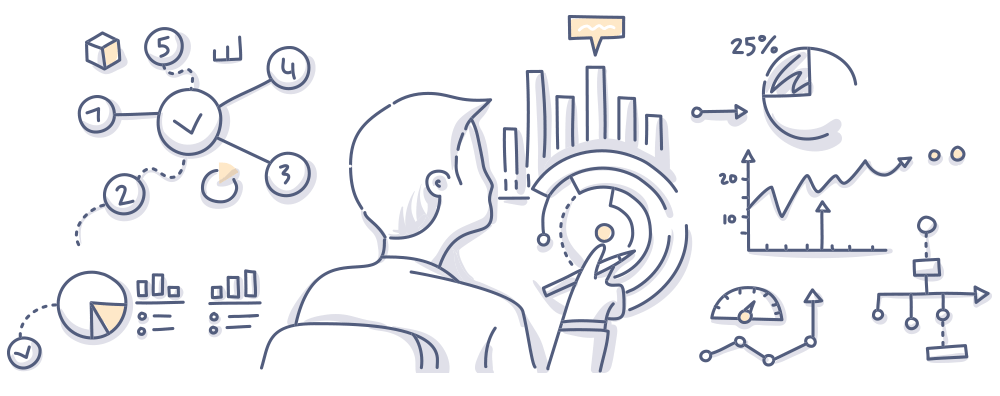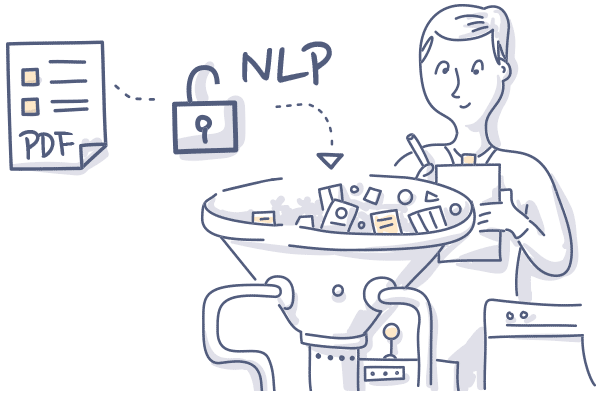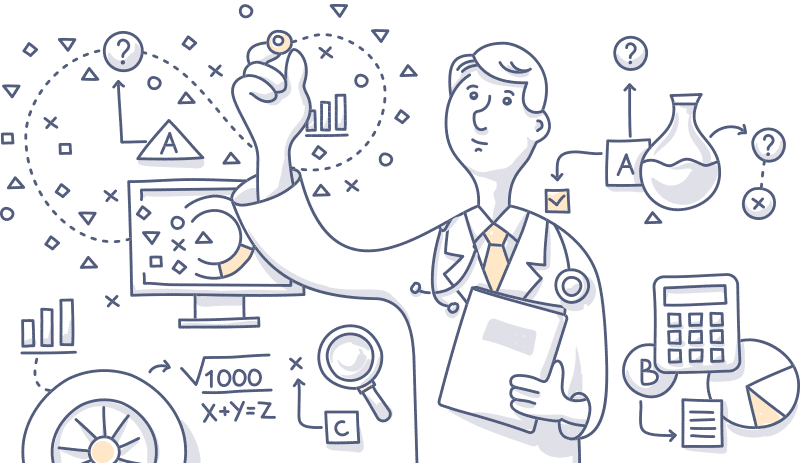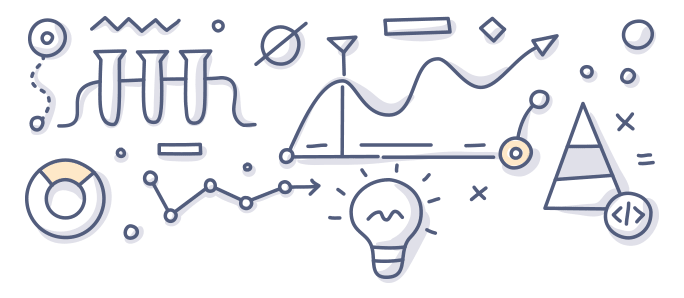AI in Healthcare
The emergence of artificial intelligence (AI) in healthcare has been groundbreaking, reshaping the way we diagnose, treat and monitor patients. This technology is drastically improving healthcare research and outcomes by producing more accurate diagnoses and enabling more personalized treatments. AI in healthcare’s ability to analyze vast amounts of clinical documentation quickly helps medical professionals identify disease markers and trends that would otherwise be overlooked. The potential applications of AI and healthcare are broad and far-reaching, from scanning radiological images for early detection to predicting outcomes from electronic health records. By leveraging artificial intelligence in hospital settings and clinics, healthcare systems can become smarter, faster, and more efficient in providing care to millions of people worldwide. Artificial intelligence in healthcare is truly turning out to be the future – transforming how patients receive quality care while mitigating costs for providers and improving health outcomes.
It all began with IBM's Watson artificial intelligence system, which was developed to answer questions accurately and quickly. Articles on artificial intelligence in healthcare mention IBM’s launch of a healthcare-specific version of Watson in 2011 that focused on natural language processing—the technology used to understand and interpret human communication. Today, alongside IBM, other tech giants like Apple, Microsoft and Amazon are increasingly investing in AI technologies for the healthcare sector.
The potential implications of artificial intelligence in healthcare are truly remarkable. AI in healthcare is expected to play a major role in redefining the way we process healthcare data, diagnose diseases, develop treatments and even prevent them altogether. By using artificial intelligence in healthcare, medical professionals can make more informed decisions based on more accurate information - saving time, reducing costs and improving medical records management overall. From identifying new cancer treatments to improving patient experiences, AI in healthcare promises to be a game changer - leading the way towards a future where patients receive quality care and treatment faster and more accurately than ever before.
Let’s take a look at a few of the different types of artificial intelligence and healthcare industry benefits that can be derived from their use.
Machine Learning
Machine learning is one of the most common examples of artificial intelligence and healthcare working together. It is a broad technique at the core of many approaches to AI and healthcare technology and there are many versions of it.
Machine Learning has altered the healthcare system by enabling artificial intelligence to be used in medical diagnosis and treatment. Machine learning algorithms can quickly process large amounts of clinical documentation, identify patterns and make predictions about medical outcomes with greater accuracy than ever before. From analyzing patient records and medical imaging to discovering new therapies, the data science behind machine learning is helping healthcare professionals improve their treatments and reduce costs. By leveraging AI technologies like machine learning for tasks such as disease diagnosis or drug discovery and development, doctors can more accurately diagnose illnesses and customize treatments to individual patients’ needs. Furthermore, using artificial intelligence in healthcare such as machine learning allows providers to uncover previously unseen correlations in healthcare data between diseases or detect subtle changes in vital signs that may indicate a potential problem.
The most widespread utilization of traditional machine learning is precision medicine. Being able to predict what treatment procedures are likely to be successful with patients based on their make-up and the treatment framework is a huge leap forward for the data science of many healthcare organizations. The majority of AI technology in healthcare that uses machine learning and precision medicine applications require medical images and clinical data for training, for which the end result is known. This is known as supervised learning.
Artificial intelligence in healthcare that uses deep learning is also used for speech recognition in the form of natural language processing. Features in deep learning models typically have little meaning to human observers and therefore the model's results may be challenging to delineate without proper interpretation. As deep learning technology continues to advance, it will become increasingly important for healthcare professionals to understand how deep learning technology works and how to effectively use it in clinical settings.
Natural Language Processing
Natural language processing (NLP) is a form of artificial intelligence that enables computers to interpret and use human language. This form of technology has reshaped many fields, including the healthcare industry. In healthcare, NLP is being used in a wide range of health data applications, such as improving patient care through better diagnosis accuracy, streamlining clinical processes, and providing more personalized services.
For example, NLP can be applied to medical records to accurately diagnose illnesses by extracting useful information from health data. Additionally, it can be used to identify relevant treatments and medications for each patient or even predict potential health risks based on past health data. Furthermore, NLP also provides clinicians with powerful tools for managing large amounts of complex data – something which would normally take much longer to do manually.
Natural language processing is proving to be an invaluable tool in healthcare – allowing medical professionals to use artificial intelligence to more accurately diagnose illnesses and provide better personalized treatments for their patients. This form of AI in healthcare is quickly becoming a must-have in the modern healthcare industry and is likely to become even more sophisticated and be used in a wider range of applications.
Rule-based Expert Systems
Expert systems based on variations of ‘if-then’ rules were the prevalent technology for AI in healthcare in the 80s and later periods. The use of artificial intelligence in healthcare is widely used for clinical decision support to this day. Many electronic health record systems (EHRs) currently make available a set of rules with their software offerings.
Expert systems usually entail human experts and engineers to build an extensive series of rules in a certain knowledge area. They function well up to a point and are easy to follow and process. But as the number of rules grows too large, usually exceeding several thousand, the rules can begin to conflict with each other and fall apart. Also, if the knowledge area changes in a significant way, changing the rules can be burdensome and laborious. Machine learning in healthcare is slowly replacing rule-based systems with approaches based on interpreting data using proprietary medical algorithms.
Diagnosis and Treatment Applications
Diagnosis and treatment of disease has been at the core of artificial intelligence AI in healthcare for the last 50 years. Early rule-based systems had potential to accurately diagnose and treat disease, but were not totally accepted for clinical practice. They were not significantly better at diagnosing than humans, and the integration was less than ideal with clinician workflows and health record systems.
But whether rules-based or algorithmic, using artificial intelligence in healthcare for diagnosis and treatment plans can often be difficult to marry with clinical workflows and EHR systems. Integration issues into healthcare organizations has been a greater barrier to widespread adoption of AI in healthcare when compared to the accuracy of suggestions. Much of the AI and healthcare capabilities for diagnosis, treatment and clinical trials from medical software vendors are standalone and address only a certain area of care. Some EHR software vendors are beginning to build limited healthcare analytics functions with AI into their product offerings, but are in the elementary stages. To take full advantage of the use of artificial intelligence in healthcare using a stand alone EHR system providers will either have to undertake substantial integration projects themselves, or leverage the capabilities of third party vendors that have AI capabilities and can integrate with their EHR.
Administrative Applications
Artificial Intelligence in healthcare is changing many of the administrative aspects of medical care. By automating mundane tasks, such as data entry, claims processing and appointment scheduling, using artificial intelligence in healthcare can free up time for providers and healthcare organizations to focus on patient care and revenue cycle management. Furthermore, artificial intelligence also has the potential to reduce human error by providing a faster way to review health records, medical imaging, claims processing and test results. With artificial intelligence giving medical professionals more autonomy over their workflow process, they are able to provide better quality patient care while maintaining budget efficiency. The ability of AI in healthcare to analyze the medical history of a patient and deliver better and faster results is reshaping the way healthcare providers deliver care, making it possible for them to devote more time and resources to their patients. With artificial intelligence AI in healthcare leading the charge in improving patient care, medical professionals can be confident that they can focus on delivering quality care while also saving time and money with AI-powered administrative tasks.
Ultimately, artificial intelligence in healthcare offers a refined way for healthcare providers to deliver better and faster patient care. By automating mundane administrative tasks, artificial intelligence can help medical professionals save time and money while also giving them more autonomy over their workflow process.
Challenges for Artificial Intelligence in Healthcare
As healthcare organizations increasingly invest in the use of artificial intelligence in healthcare for a range of tasks, the challenges facing this technology must be addressed, as there are many ethical and regulatory issues that may not apply elsewhere.
Some of the most pressing challenges include data privacy and security, patient safety and accuracy, training algorithms to recognize patterns in medical data, integrating AI with existing IT systems, gaining physician acceptance and trust, and ensuring compliance with federal regulations. Data privacy is particularly important as AI systems collect large amounts of personal health information which could be misused if not handled correctly. Additionally, proper security measures must be put into place in order to protect sensitive patient data from being exploited for malicious purposes.
Patient safety and accuracy are also important concerns when using AI in healthcare. AI systems must be trained to recognize patterns in medical data, understand the relationships between different diagnoses and treatments, and provide accurate recommendations that are tailored to each individual patient. Furthermore, integrating AI with existing IT systems can introduce additional complexity for medical providers as it requires a deep understanding of how existing technology works in order to ensure seamless operation.
Finally, gaining acceptance and trust from medical providers is critical for successful adoption of AI in healthcare. Physicians need to feel confident that the AI system is providing reliable advice and will not lead them astray. This means that transparency is essential – physicians should have insight into how the AI system is making decisions so they can be sure it is using valid, up-to-date medical research. Additionally, compliance with federal regulations is a must to ensure that AI systems are being used ethically and not putting patient safety at risk.
When Did AI Become Popular in Healthcare?
The surge in popularity of healthcare AI marks a transformative era in the medical field. This phenomenon, gaining momentum over the past decade, has seen the role of AI in healthcare emerge as a cornerstone for innovation and efficiency in medical practices worldwide. Understanding when and how AI became so integral requires exploring its applications, benefits, and the groundbreaking examples of healthcare AI.
AI in the medical field began to gain substantial attention in the early 21st century, with significant advancements in technology and data analysis. This period saw a convergence of increased computational power, the availability of large datasets (Big Data), and significant improvements in machine learning algorithms. The real turning point, however, came with the realization of how AI could address some of the most pressing challenges in healthcare, ranging from diagnostic accuracy to personalized treatment and operational efficiency.
Statista reports that the AI healthcare market, which was valued at $11 billion in 2021, is expected to soar to $187 billion by 2030. This significant growth suggests that substantial transformations are anticipated in the operations of medical providers, hospitals, pharmaceutical and biotechnology companies, and other healthcare industry participants.
The Benefits of AI in Healthcare
The benefits of AI in healthcare have quickly become apparent. AI for healthcare offers the ability to process and analyze vast amounts of medical data far beyond human capacity. This capability was instrumental in diagnosing diseases, predicting outcomes, and recommending treatments. For instance, AI algorithms can analyze medical images, such as X-rays and MRIs, with greater accuracy and speed than human radiologists, often detecting diseases such as cancer at earlier stages.
Examples of artificial intelligence in healthcare are diverse and impactful. A significant development besides IBM’s Watson Health was Google's DeepMind Health project, which demonstrated the ability to diagnose eye diseases from retinal scans with a level of accuracy comparable to human experts. These pioneering projects showcased AI's potential to revolutionize diagnostics and personalized medicine.
The question of how is AI used in healthcare extends beyond diagnostics. AI applications are also reshaping patient care management, drug discovery, and healthcare administration. In patient care, AI-driven chatbots and virtual health assistants provide 24/7 support and monitoring, enhancing patient engagement and adherence to treatment plans. In drug discovery, AI accelerates the drug development process by predicting how different drugs will react in the body, significantly reducing the time and cost of clinical trials.
Another area where AI has made a significant impact is in predictive analytics. Healthcare AI systems can analyze patterns in a patient's medical history and current health data to predict potential health risks. This predictive capability enables healthcare providers to offer proactive, preventative care, ultimately leading to better patient outcomes and reduced healthcare costs.
AI streamlines various processes within healthcare facilities. From scheduling appointments to processing insurance claims, AI automation reduces administrative burdens, allowing healthcare providers to focus more on patient care. This not only improves operational efficiency but also enhances the overall patient experience.
The rise of AI in healthcare has been a gradual but steady journey, catalyzed by technological advancements and the increasing demand for improved healthcare delivery. The integration of AI into the medical field has brought about a paradigm shift, making healthcare more efficient, accurate, and personalized. As AI technology continues to evolve, its role in healthcare is set to become even more significant, further solidifying its status as an indispensable tool in modern medicine. This journey of AI from a novel concept to a fundamental aspect of healthcare exemplifies a technological revolution, with the promise of better health outcomes for all.
The Future of AI in Healthcare
During the 2024 Precision Med TriConference, Mara Aspinall of Illumina Ventures engaged in a fireside chat with Eric Topol, who holds an endowed chair and serves as the executive VP and professor at Scripps Translational Science Institute, to explore the integration of precision medicine and artificial intelligence (AI). Topol, an author of three books and over 1,200 peer-reviewed publications, is a prominent figure in digital medicine. He believes that AI adoption in healthcare is crucial and imminent. However, he questions whether the medical community is prepared for such a shift.
Topol remarked, "I believe this will be the most significant transformation in medical history, yet we are only at the beginning. We lack the necessary solid evidence from real-world applications. Until we obtain this, we must approach our advances with caution. Nevertheless, the indicators of progress are emerging rapidly."
As artificial intelligence in healthcare has grown in its capabilities, using it to improve medical practices has become increasingly viable. With the development of AI-powered medical tools and intelligent algorithms that are able to interpret large data sets, the potential for using AI in healthcare is limitless. Deep learning AI can be used to help detect diseases faster, provide personalized treatment plans and even automate certain processes such as drug discovery or diagnostics. It also holds promise for improving patient outcomes, increasing safety and reducing costs associated with healthcare delivery.
The future of using artificial intelligence in healthcare is undoubtedly bright and filled with possibilities for further innovation. As we move forward into a more connected digital world, using AI in the healthcare industry will become an invaluable asset that could potentially reshape how doctors treat patients and deliver care. With such great potential, it is clear that using artificial intelligence in healthcare holds the promise of a future filled with advancements, improved health outcomes and better patient experiences.
The primary obstacle for AI in healthcare isn't its capability to be effective, but rather its integration into everyday clinical practice. Over time, medical professionals might shift towards roles that necessitate distinctly human skills, particularly those involving advanced cognitive functions. It's possible that the only healthcare providers who won't fully benefit from AI advancements are those who choose not to embrace its use.
Are you looking to extract actionable insights from your data using the latest artificial intelligence technology? See how ForeSee Medical can empower you with insightful HCC risk adjustment coding support and integrate it seamlessly with your electronic health records.
By Steve Barth, Marketing Director
Sources:
Lee SI, Celik S, Logsdon BA, et al. A machine learning approach to integrate big data for precision medicine in acute myeloid leukemia. Nat Commun 2018;9:42. [PMC free article] [PubMed] [Google Scholar]
Fakoor R, Ladhak F, Nazi A, Huber M. Using deep learning to enhance cancer diagnosis and classification. A conference presentation The 30th International Conference on Machine Learning, 2013. [Google Scholar]
Davenport TH, Glaser J. Just-in-time delivery comes to knowledge management. Harvard Business Review 2002. https://hbr.org/2002/07/just-in-time-delivery-comes-to-knowledge-management. [PubMed] [Google Scholar]
Bush J. How AI is taking the scut work out of health care. Harvard Business Review 2018. https://hbr.org/2018/03/how-ai-is-taking-the-scut-work-out-of-health-care. [Google Scholar]
Ross C, Swetlitz I. IBM pitched its Watson supercomputer as a revolution in cancer care. It's nowhere close. Stat 2017. www.statnews.com/2017/09/05/watson-ibm-cancer. [Google Scholar]
Davenport TH. The AI Advantage. Cambridge: MIT Press, 2018. [Google Scholar]

